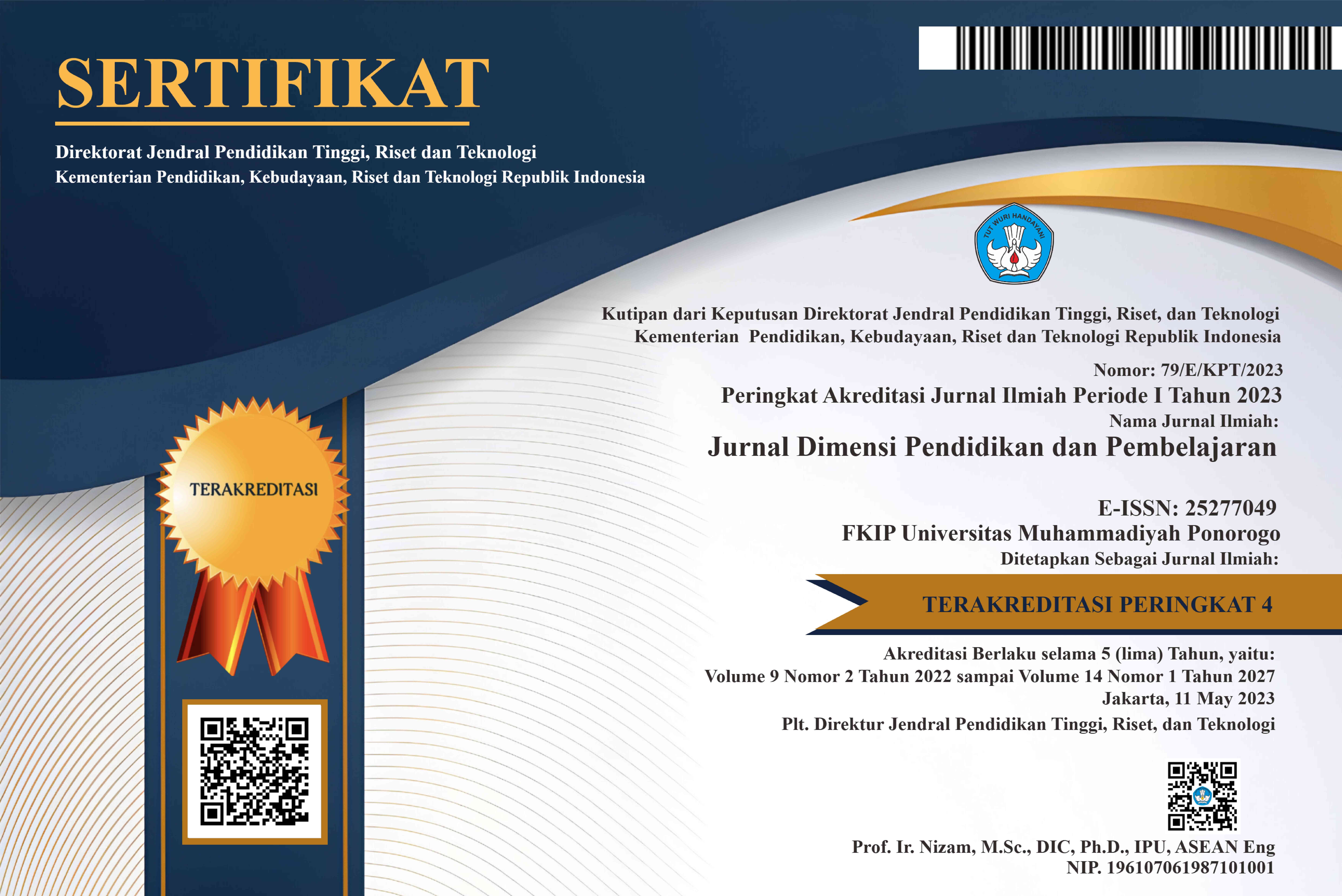The Role of Pancasila Education Teachers in
Implementing the Independent Pancasila Student Profile for Children with Special Needs at Muhammadiyah 2 Middle School, Ponorogo
DOI:
https://doi.org/10.24269/dpp.v13i2.12490Abstract
This study applies a qualitative approach to examine the role of Pancasila education teachers in implementing the Pancasila student independence profile for children with special needs at SMP Muhammadiyah 2, Ponorogo, a technique for collecting data covering observation, interviews, and recording. Observations are made to understand the direct learning process and interaction between the Teacher And students. We interview the head of the school, the leader of the curriculum, and the Teacher Pancasila Education to gather information, perspectives, and obstacles faced in carrying out learning. Documentation is used to obtain additional data in the form of supporting documents. This study's data analysis process includes data reduction, presentation, and conclusion. Data reduction involves filtering and summarizing important information from the raw data obtained. The data is presented as a narrative description to describe the phenomenon being studied in depth. Conclusions are drawn systematically based on patterns and findings identified during analysis, which answer the formulation of the problem. Research results show that Teacher Pancasila education plays a strategic role as a source of learning, facilitator, manager, demonstrator, mentor, and evaluator in supporting the development of independent children with special needs. Teachers must also understand biological, psychological, and student cultures to create meaningful experiences. Factors supporting the success of implementation include other support policies, an inclusive environment, friendly study involvement, an active person, old age, dedication, and the competence of teachers. However, this implementation also faces challenges like limited facilities, a lack of understanding of teachers about learning inclusivity, and public awareness about the importance of inclusive education
Downloads
Published
Issue
Section
License
Copyright (c) 2025 Dwi Setyani , Ambiro Puji Asmaroini , Hadi Cahyono

This work is licensed under a Creative Commons Attribution 4.0 International License.
Copyright
Authors who publish their manuscripts in this journal agree to the following terms:
- The copyright on each article belongs to the author.
- The author acknowledges that Jurnal Dimensi Pendidikan dan Pembelajaran has the right to be the first to publish under a Creative Commons Attribution 4.0 International (Attribution 4.0 International CC BY 4.0) license.
- Authors may submit articles separately, arranging for the non-exclusive distribution of manuscripts that have been published in this journal to other versions (e.g., sent to the author's institutional repository, publication into books, etc.), acknowledging that the manuscript was first published in the Jurnal Dimensi Pendidikan dan Pembelajaran.
Â
License
Use of the article will be governed by the Creative Commons Attribution license as currently published under the Creative Commons Attribution 4.0 International License (Attribution 4.0 International (CC BY 4.0).
Â
This license permits anyone to copy and redistribute this material in any form or format, compose, modify, and make derivatives of this material for any purpose, including commercial purposes, as long as they give credit to the author for the original work.


_001.jpg)



